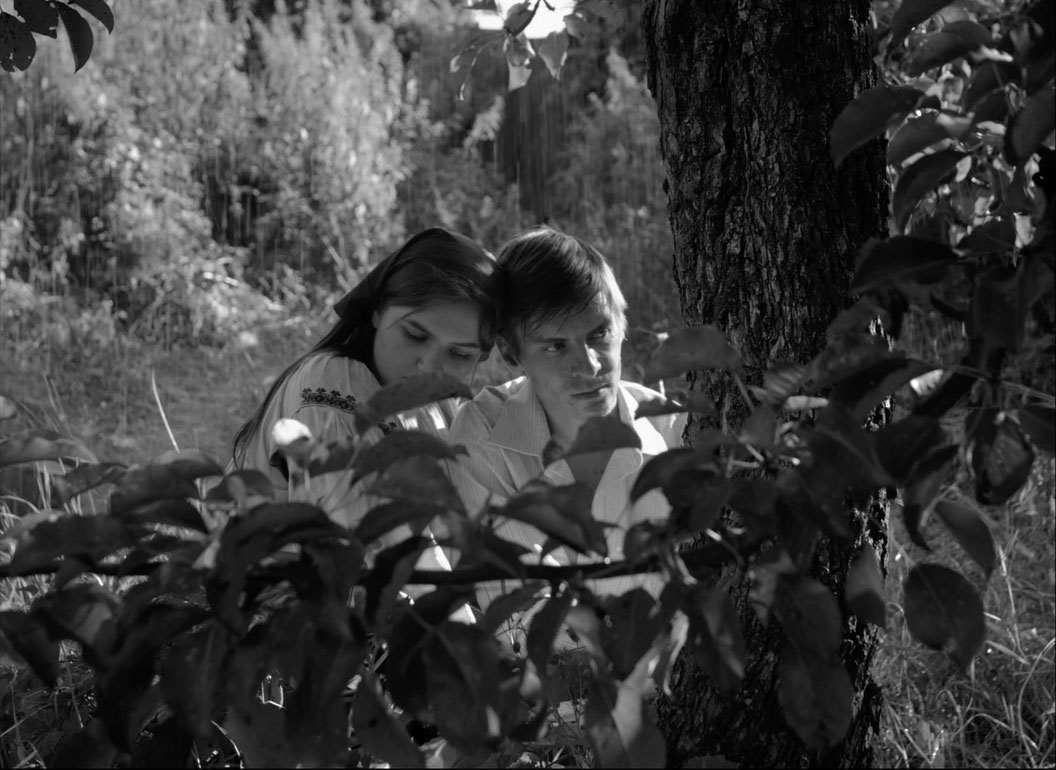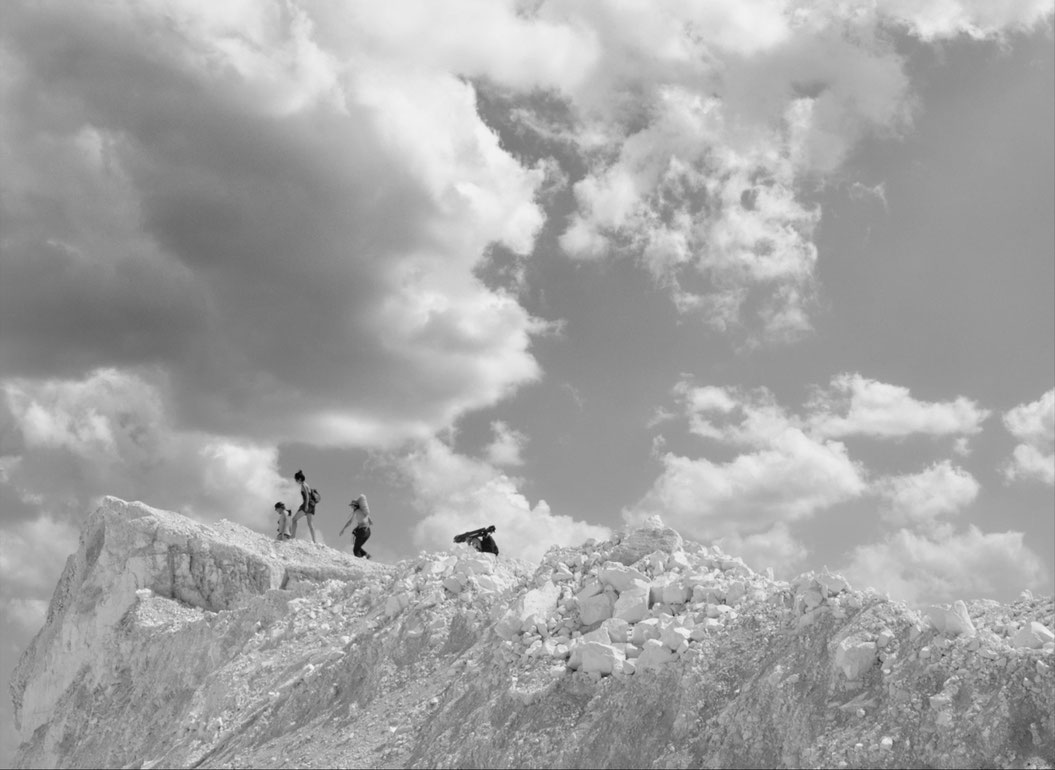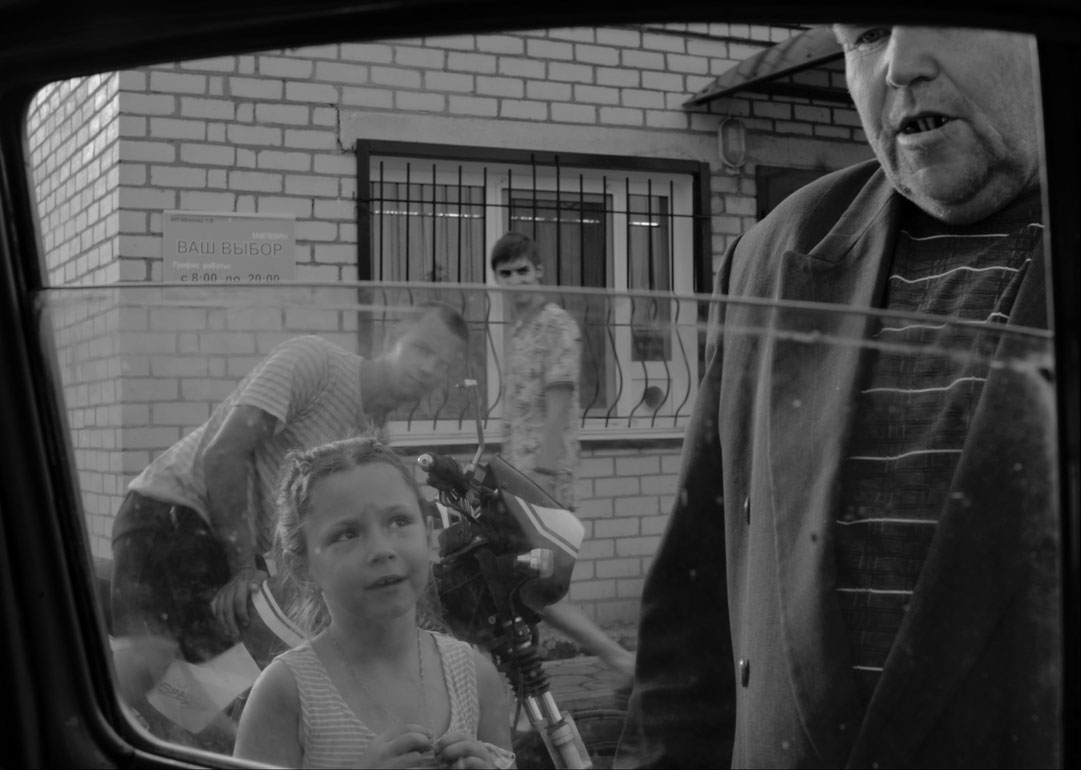Krai
Russian-born director Aleksey Lapin travels back to his relatives’ home village near the Ukrainian border, where he himself used to spend every summer. The film crew introduce themselves at a specially organized musical event, claiming that they have come to cast a historical film that is to be set in the village. What follows is a charming, semi-fictional documentary by and with the village community. The proposed film project is just a pretext, that’s obvious from the start. Nonetheless, the villagers are happy to take part. Inventively and with subtle irony, Lapin plays with the boundaries between documentary and fiction. Thus observed scenes unobtrusively merge into staged ones. He records marvellously absurdities, for example a tree being felled and laboriously put up somewhere else for the “shoot”, or broken-down cars fuelling the rumours of electromagnetism in the area. The cinematography in black and white is notable, full of references to classic Russian films, timeless and timely at the same time. Lapin’s feature-length debut is not only an affectionate local portrait with a sense for the absurd, but also a film about film: In a long dialogue by the river, two protagonists talk about cinema as an art form and how it is changing.
(Annina Wettstein / DOK Leipzig Katalog 2021)
In the past, film was still an art that was completely committed to life, as someone remarks in Krai (“The Country”). Now, however, like so many other things, this artform is corrupted by greed for profit. In his film, Aleksey Lapin agrees with this complaint, but with tongue in cheek: his portrait of a village on the Russian-Ukrainian border, with its rhapsodic, poetic form, isn’t taken in by any trends. And Lapin himself also adds a touch of irony to the statement himself, as two lads casually chatting onscreen are brought back to the present moment by the film crew who ask, “Can we film something now?”
That scene already says a lot about the self-conscious nature of this black-and-white film. In it, Lapin fakes the casting process for a work about his hometown. Thus the film is already a hybrid, because it seeks personal encounters out of this camouflage. By disclosing his intentions right from the start, the director lures in the villagers, who generously reveal themselves and their deepest aspirations to the camera. Observed scenes, like the one in an Orthodox church, alternate with conversations, for example with an elderly, retired teacher. And then the film seems to move away from work again, as it wanders over to a man with a horse on a river bank or to farmers in the fields.
In all of this, Krai follows the satirical tradition of Jonathan Swift; as a result, the fantastical sides of reality are highlighted a little more clearly. Strange rumors about electromagnetism float around, while cars inexplicably die in the middle of the road. Lapin’s view of the villagers is affectionate, but not entirely unwavering: he would never let anyone embarrass themselves, but he does look for what is archetypal in the characters. Whether it’s a lone misfit who wants to release his bird from its cage, or a woman who is covering her children’s room with new wallpaper, Krai shows a village whose hidden stories need just a bit of magic in order to be conjured up. (Dominik Kamalzadeh)
Translation: John Wojtowicz
One World Romania, Bukarest 2022 - catalogue entry (en)
No matter how ethically problematic, one efficient way to find the truth is to begin with a lie. And when someone searches to capture the imperceptible and fugitive truth of a human being aided by a device which is forced to remain on the visible surface of things, like in the case of the movie camera, a dose of fiction often proves essential. Guided by this principle, Alexei Lapin, a Russian filmmaker who lives and works in Western Europe, returns to his grandparents’ village, where he spent his childhood summers, in order to shoot his first feature. Lapin seems to adhere to Edgar Morin’s creed, expressed at the end of the experiment which was “Chronicle of a Summer”: in front of the camera people force themselves to be more honest than in their everyday life. Does this mean they’re faking it? “The Country” doesn’t solve this conundrum – instead, it revels in the undetermined space between authenticity and simulacrum, documentary and fiction, past and present. Under the pretext of organizing a casting for a period movie, the film crew introduce themselves in the peacefully-flowing life of the village, causing a bit of a commotion among the locals: young people and older people, amateur actors or complete beginners, students, unemployed people, or farmers all become part of the movie, if only through looking straight into the camera for a moment. In spite of its mechanism, the movie never turns into a complaisant meta-cinematographic exercise. On the contrary, it is an ode to the simple, yet not unmysterious or unimaginative life of the people who not only appear in it, but even subtly take over its reins as they use cinema the way they once used to use oral language, as a means to assert their place in the world and to perpetuate their folklore.
Liri Alienor Chapelan for ONE WORLD ROMANIA FILM FESTIVAL 2022
Krai
2021
Austria
123 min
hybrid
Russian, German, English, Italian
English, German



